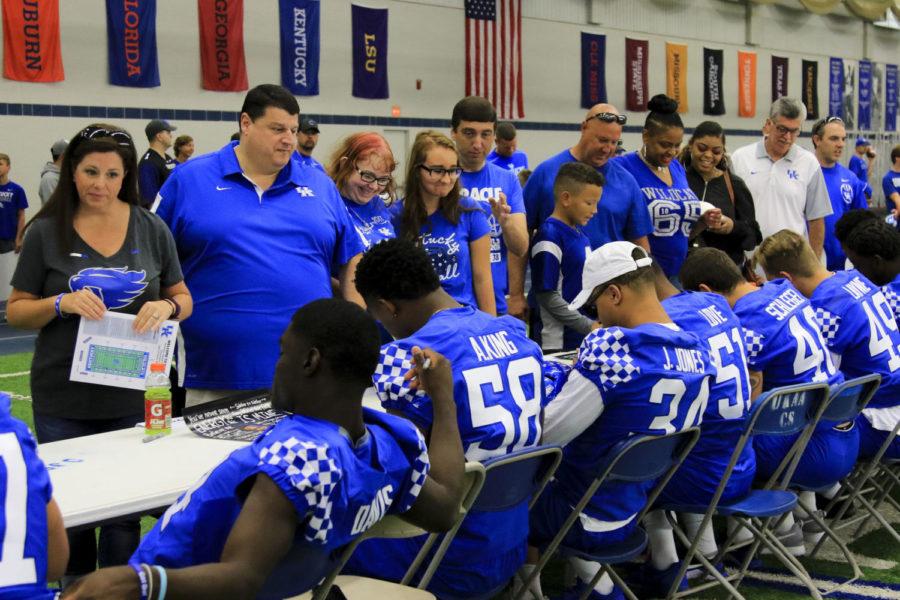Do college athletes have the same social power as professionals?
Fans wait in line to get autographs from the line backers during fan day at the Joe Craft Football Training Facility on Saturday, August 5, 2017 in Lexington, KY. Photo by Addison Coffey | Staff
September 1, 2017
After Colin Kaepernick kneeled in protest during the national anthem at an NFL game last year – and subsequently lost his job – a wave of protest rippled through the sports world. Kaepernick’s silent protest sparked national outrage and cost him his contract with the San Francisco 49ers, but considering a typical college athlete’s admiration for established pro-athletes, what would a similar protest mean for them?
College campuses are a breeding ground for protests, especially in recent months. But college students and college athletes are two different groups. College students can protest whatever and whenever they want – they’re usually paying for their own tuition, their grades aren’t being as closely monitored as athletes, and they’re not public figures on campus representing a specific program.
The status of college athletes can make it difficult for them to express controversial or unpopular beliefs, especially when their fan base might disagree. Often times, their entire college experience depends on a scholarship and is the sole determinant of their future as professional athletes. But not all hope is lost.
Unlike professional athletes who have even more fame and a weaker support system, college athletes have a group of coaches, administrators and close teammates that they can talk to and seek advice from regarding societal issues that are bothering them.
With that support system, however, comes control from the school. It’s usually in their best interest to deter a bold protest from one of their players as they need revenue from their fan base to survive. Any protest or action from a college team would be extremely strategic and diplomatic as opposed to what one or two players might do on their own.
While a college community brings support and gives athletes an opportunity to reach their dreams, they also hold that individual’s future in their hands. If a student’s future isn’t their own, are their First Amendment rights either?
To read the full story by USA Today, click here.
































































































































































